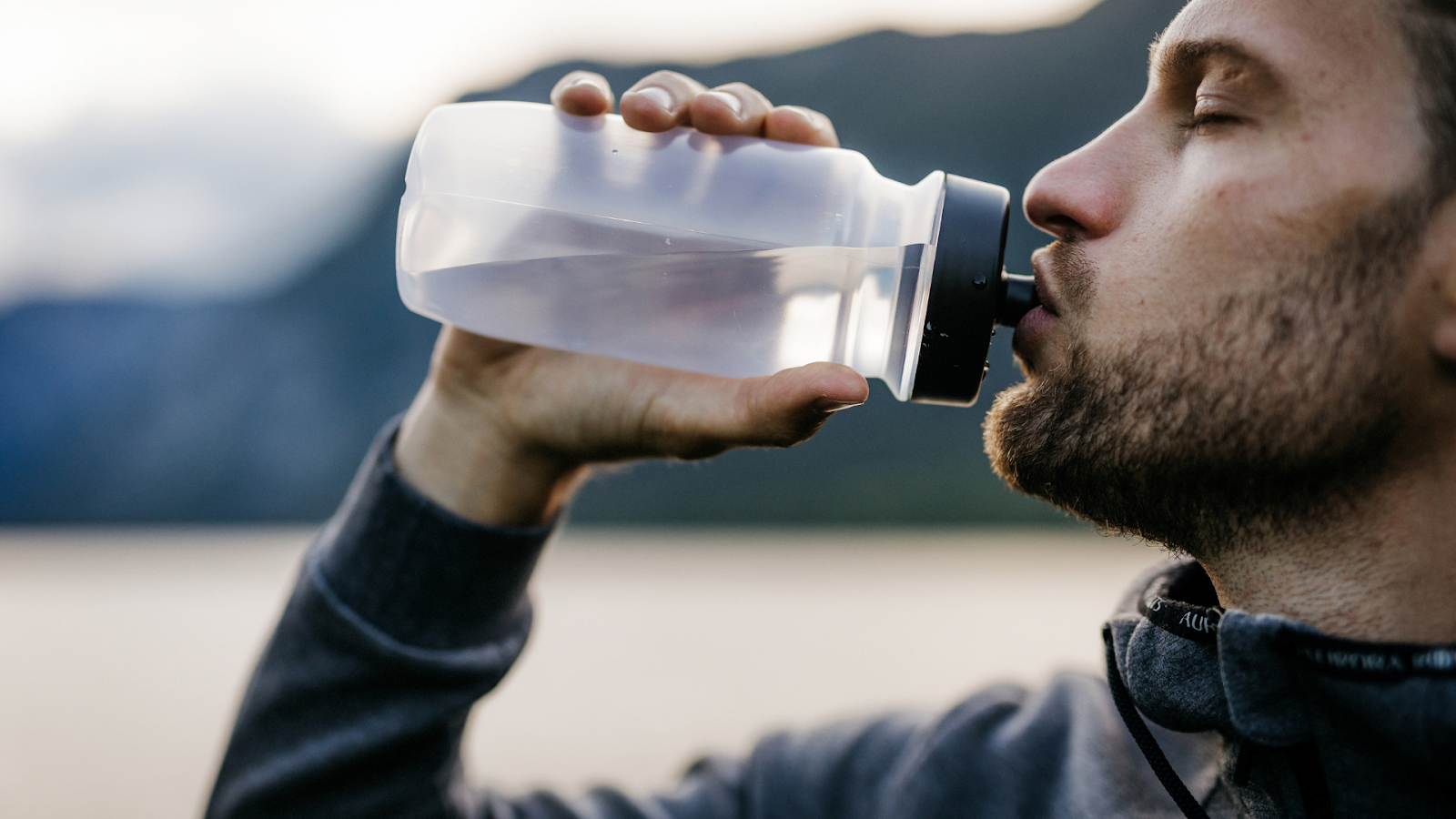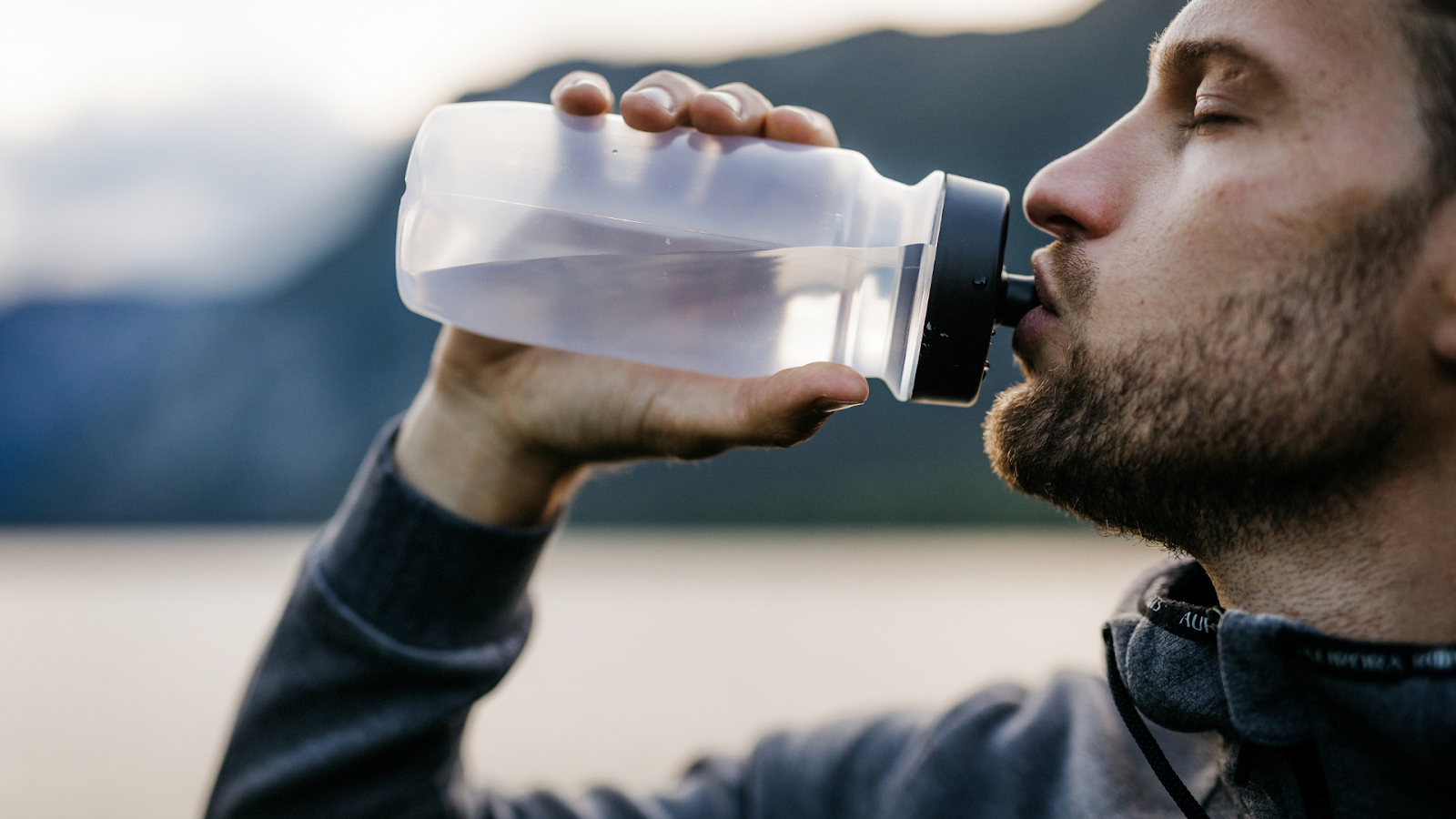Marathon: Your Ultimate Guide To Training and Recovery
Ready to conquer the miles and triumph in a marathon? We've got you covered with the ultimate guide! Whether you're a seasoned marathoner or lacing up for your first 26.2-mile adventure, prepare to dive into this exhilarating and rewarding journey. From crafting your training plan to powering up with Firefly Recovery Portable Device, we've got every aspect of your marathon journey covered.
Join us as we unveil the secrets to conquer the miles and bounce back stronger than ever. Your ultimate guide to marathon training and recovery awaits – let's make this marathon journey unforgettable! Shop Firefly today or keep reading!
What Is A Marathon?
A marathon is not just a race; it's an inspiring journey that captures the hearts of athletes and fitness enthusiasts worldwide! Covering a challenging distance of 26.2 miles (42.195 kilometers), marathons symbolize the power of human endurance, determination, and triumph over adversity.
Rooted in ancient history, the marathon draws inspiration from the legendary tale of Pheidippides, the messenger who ran from the battlefield of Marathon to Athens to deliver a victorious announcement. Today, it has evolved into a prestigious long-distance running event, attracting individuals from all walks of life to participate in this ultimate test of mental and physical strength.
Recover Like A Marathon Champion With FireflyReady to take your marathon recovery to the next level? Meet Firefly, the cutting-edge recovery device tailored to enhance your marathon journey. With Firefly, you can supercharge your recovery, bouncing back 3x faster and ready to conquer your next training session!
Recover like a marathon champion and achieve peak performance with Firefly today! |
How Do Marathons Work?
Participating in a marathon involves several essential elements:
Registration
Whether you're a seasoned runner or preparing for your first marathon, getting your name on the participant list is the first step in this adventure. Aspiring marathoners must register through official channels, especially for popular marathons with limited slots.
Training
Marathon success demands dedicated training and unwavering commitment. Follow structured plans that gradually build your endurance, challenge your limits, and prepare both your body and mind for the long-distance journey ahead. The training process is where you will witness your growth and resilience, making each step of the marathon journey more rewarding.

Race Day
Runners will gather at the starting line, each fueled by their aspirations and goals. The marathon follows a carefully marked course, taking you through scenic routes, bustling city streets, and sometimes even iconic landmarks, creating an unforgettable experience to cherish.
Pacing
Pacing is a critical aspect of marathon running. It's all about finding that perfect balance between pushing your limits and conserving energy to avoid burning out too early in the race. Staying mindful of your pace will help you conquer each mile with determination and a smile on your face.
Support And Aid Stations
Along the course, marathons provide well-placed aid stations with water, sports drinks, and sometimes energy gels to keep you hydrated and energized throughout the miles. The support from fellow runners and spectators will uplift your spirits and carry you forward.
Finish Line
Crossing the finish line is the ultimate goal of every marathon runner. As you complete the challenging distance, a profound sense of accomplishment and elation washes over you, celebrating not just the miles you covered but also the perseverance and strength you discovered within yourself.
What Is The History Of The Marathon?
The history of the marathon is steeped in ancient Greek legend and heroism. According to the tale, the legendary Greek messenger Pheidippides ran approximately 25 miles from the battlefield Marathon to Athens to deliver the momentous news of victory over the Persians in 490 BC.
In honor of this incredible feat, the modern marathon distance was officially set to 26.2 miles for the 1908 London Olympics. The route was adjusted to ensure the race would finish in front of the royal box, adding an extra 385 yards to the distance. This modification gave birth to the iconic marathon distance we know today.
Since then, marathons have evolved into an international phenomenon, capturing the hearts of athletes and spectators worldwide. They have become a symbol of human endurance, determination, and the triumph of the human spirit, echoing the legendary journey of Pheidippides and honoring the rich history that fuels the race's legacy.
Why Are Marathons Important?
Marathons are significant beyond athletics:
- Fitness And Health: Months of training promote overall fitness and well-being.
- Community And Support: The tight-knit marathon community fosters camaraderie and uplifts everyone involved.
- Fundraising And Charity: Many marathons support charitable causes, making a positive impact on society.
- Inspiration And Motivation: Marathon runners inspire others to set ambitious goals and believe in their abilities.
- Cultural And Historical Significance: Marathons hold historical roots and symbolize the enduring human spirit.
Creating A Marathon Training Plan
Training for a marathon requires a structured and well-rounded approach. Here's a step-by-step guide to creating an effective marathon training plan:
Assess Your Current Fitness Level
Before diving into marathon training, evaluate your current running capabilities. Consider factors like your running experience, average mileage, and overall fitness level. Setting realistic goals based on your assessment will lay the foundation for a tailored training plan.
Build A Base
Building a strong base is essential for marathon success. Start with shorter running distances and gradually increase your mileage over time. This allows your body to adapt and develop the endurance needed to conquer the 26.2-mile journey.
Incorporate Cross-Training
Don't limit yourself to running – incorporate cross-training activities like swimming, cycling, or strength training into your routine. Cross-training improves overall fitness, strengthens different muscle groups, and reduces the risk of overuse injuries.
Plan Your Runs
Develop a weekly workout schedule that includes a mix of various running workouts. Long runs will build stamina, tempo runs will improve speed, intervals will enhance endurance, and easy runs will aid in recovery. Balancing these elements will optimize your performance and prepare you for the demands of marathon day.
Train with a Friend or Running Group
Incorporate social aspects into your training by running with a friend or joining a running group. This provides extra motivation, accountability, and can make the training process more enjoyable. Sharing experiences and tips with fellow runners can also offer new perspectives and enhance your preparation.
Practice Tapering
As the marathon date approaches, allow your body to recover and rest. Tapering involves gradually reducing your training volume in the weeks leading up to the race. This approach ensures that you arrive at the starting line feeling fresh, fully recovered, and ready to give your best effort.
Nutrition, Hydration, Rest, And Recovery
In the world of marathon training, nutrition, hydration, rest, and recovery play a crucial role in optimizing performance. A well-balanced diet fuels intense workouts and aids in post-run recovery¹ while staying hydrated ensures peak stamina during those long runs.² Sufficient sleep allows your body to rebuild and repair,³ preparing you for your next challenge.
But as any marathoner knows, training for the 26.2-mile journey can be demanding – recovery takes time, with the body needing an average of 48 to 72 hours to bounce back. However, there's a game-changing solution to expedite your recovery: the Firefly Recovery Portable Device. This cutting-edge device harnesses the power of small electrical pulses for increased blood flow, accelerating muscle recovery, reducing soreness, and optimizing your performance.
By integrating Firefly into your post-training routine, you'll have the ultimate recovery companion by your side, minimizing downtime and getting you back in action swiftly. Conquer the miles with confidence and stay ahead of the game. Embrace the power of supercharged marathon recovery with proper nutrition, hydration, sleep, and Firefly.
Injury Prevention And Training Safety
Training for a marathon puts significant stress on your body, so here are essential tips to prevent injuries and maintain training safety:
- Proper Footwear: Invest in high-quality running shoes that provide adequate support and cushioning. A well-fitted pair of shoes can make a world of difference in reducing the impact on your feet and lower limbs during those long training runs.
- Warm-Up And Cool-Down: Always start with dynamic warm-up exercises and end with static stretches to prepare your muscles for the workout and reduce the risk of muscle strains and injuries.
- Strength Training: Incorporate strength exercises into your training routine to strengthen muscles and support joints during marathon training. A strong and stable body is more resilient to the rigors of long-distance running.
Tips For Marathon Recovery
Proper recovery is essential to perform at your best and prevent injuries after completing a marathon. The post-race period is crucial for allowing your body to heal and replenish, so here are some valuable tips for a speedy marathon recovery:
Recovery Device
Consider using a portable recovery device like the Firefly Recovery Portable Device. This wearable device uses gentle electrical impulses to stimulate muscles, improving blood flow and reducing muscle soreness. You can easily attach it to your legs, making it a convenient tool for post-marathon recovery.
Rest And Sleep
Give your body enough time to rest and recover after the race. Your muscles undergo significant stress during the marathon, and adequate rest allows them to repair and rebuild. Aim for quality sleep – this is when the body releases growth hormones crucial for tissue repair and muscle recovery. Most adults need between 7 to 9 hours of sleep per night, but individual needs vary.
Hydration
Proper hydration is essential before, during, and after the marathon. Dehydration can lead to decreased performance, muscle cramps, and a higher risk of injury. During the race, you lose fluids through sweat, so it's essential to drink water or electrolyte-rich beverages to replace what's lost. After the race, continue hydrating to aid in the recovery of your muscles and overall body function.


Compression Garments
Consider using compression garments, such as socks or sleeves, after the marathon. These garments apply pressure to specific areas of the body, typically the legs, improving circulation and reducing muscle soreness and inflammation. They may also facilitate the removal of metabolic waste products, helping you recover more efficiently.
Ice Baths
Taking ice baths after a marathon is a popular recovery technique among athletes. The cold temperature constricts blood vessels, which may reduce inflammation and limit the extent of muscle damage. After finishing a marathon, the muscles experience micro-tears and inflammation, which can lead to soreness and discomfort. Ice baths are thought to help minimize these effects, allowing for a quicker recovery.
Post-Marathon Recovery Nutrition
To optimize your body's healing and replenish depleted energy stores, focus on the following post-marathon nutrition tips:
- Replenish With Carbohydrates: Your body burns through its energy reserves during a marathon. To replenish these stores, consume carbohydrates from sources like whole grains, fruits, and vegetables.
- Increase Your Protein Intake: Protein is crucial for repairing and rebuilding muscle tissue that gets damaged during the marathon. Include lean sources of protein in your post-race meals, such as chicken, fish, lean beef, or plant-based alternatives like tofu or legumes.
- Healthy Fats: Healthy fats are an essential part of your recovery diet. They help reduce inflammation and support overall recovery. Incorporate foods rich in healthy fats, such as avocados, nuts, seeds, and olive oil, into your post-marathon meals.
Are you interested in learning more about muscle recovery? Visit our blog! You can also check our clinical studies if you’re leaning more into knowing how Firefly can help you recover faster.
Benefits Of Running A Marathon
Participating in marathons offer numerous benefits, both physical and mental:
What Are The Alternatives To Marathon?
If you’re not interested in or cannot participate in a marathon, you can also try:
Half-Marathons
A half-marathon covers a distance of 13.1 miles, providing a challenging yet less daunting option for those looking to participate in a long-distance race with less training time required. It's an excellent stepping stone for runners aspiring to tackle a full marathon in the future.
10K And 5K Runs
Shorter distance races like 10 kilometers (10K) or 5 kilometers (5K) are more accessible for beginners or those with time constraints, while still offering the thrill of a race day experience. These races are perfect for runners looking to improve their speed and endurance over shorter distances.
Trail Running
For nature lovers and adventurers, trail running offers the excitement of exploring scenic landscapes and challenging terrains, adding an element of adventure to the running experience. Trail races often take participants through forests, mountains, and rugged terrains, providing a refreshing change from the urban environment.
Triathlons
Triathlons combine swimming, cycling, and running into one endurance event, providing a multi-disciplinary challenge that tests athletes' physical versatility. These are a fantastic option for those seeking a diverse and dynamic race experience that engages multiple muscle groups and skills.
Final Thoughts
Marathons and endurance events offer thrilling challenges and boundless opportunities. As you run this exhilarating path, remember to craft a well-rounded training plan, prioritize proper nutrition, hydration, and rest, and integrate smart recovery practices into your routine. Embrace the power of the Firefly to supercharge your recovery process and bounce back stronger and faster after each marathon.
Ultimately, marathons and endurance events are not just races – they’re transformative experiences that inspire resilience, foster a sense of community, and ignite the flames of personal growth. Conquer the miles, surpass your limits, and celebrate the joy of becoming the best version of yourself. Train for that marathon, and shop Firefly today!
Interested in learning more about marathons and muscle recovery? Check out:
- Speed Up Your Marathon Recovery: A Guide To Getting Back On Track
- The Marathon Is Over: Now Recover Quickly With This Guide
- Advancing Athletic Recovery Tools: Science And Sports Working Together
FAQs
How long is a marathon?
A marathon is 26.2 miles or 42.195 kilometers long.
What is the best time to start marathon training?
The best time to start marathon training is typically between 12 to 20 weeks before the race, depending on your fitness level.
How do I avoid hitting the wall during a marathon?
To avoid hitting the wall during a marathon, focus on proper nutrition during your training and consume energy gels or snacks during the race.
Can I walk during a marathon?
Yes, many participants opt for a run-walk strategy to conserve energy and finish strong.
When should I replace my running shoes?
Replace your running shoes every 300 to 500 miles, considering your running style and shoe type.
Is carb-loading necessary before a marathon?
Carb-loading can benefit glycogen stores, but it's important to practice it only during training to avoid race-day gastrointestinal issues.
Can I run a marathon without prior race experience?
With a well-structured training plan and dedication, running a marathon without prior race experience is possible.
How long does it take to recover fully from a marathon?
Recovery time from a marathon varies, but it's recommended to allow at least 1 to 3 weeks for a full recovery.
How can I prevent chafing during a marathon?
To prevent chafing, wear moisture-wicking and seamless clothing, apply anti-chafing balms or petroleum jelly to problem areas, and avoid wearing cotton fabrics that can retain moisture.
Should I use energy gels during a marathon, and how often?
Energy gels can provide a quick source of carbohydrates during a marathon. Practice using them during training to determine what works best for you. Typically, runners take an energy gel every 45 minutes to an hour during the race.
What are the benefits of massage therapy for marathon recovery?
Massage therapy can aid in post-marathon recovery by reducing muscle tension, promoting circulation, and speeding up the removal of waste products from the muscles. It can also help alleviate soreness and improve overall relaxation.
Sources:
- Bonilla, D. A., Pérez-Idárraga, A., Odriozola-Martínez, A., & Kreider, R. B. (2020). The 4R's Framework of Nutritional Strategies for Post-Exercise Recovery: A Review with Emphasis on New Generation of Carbohydrates. International journal of environmental research and public health, 18(1), 103. https://doi.org/10.3390/ijerph18010103
- Armstrong L. E. (2021). Rehydration during Endurance Exercise: Challenges, Research, Options, Methods. Nutrients, 13(3), 887. https://doi.org/10.3390/nu13030887
- Vitale, K. C., Owens, R., Hopkins, S. R., & Malhotra, A. (2019). Sleep Hygiene for Optimizing Recovery in Athletes: Review and Recommendations. International journal of sports medicine, 40(8), 535–543. https://doi.org/10.1055/a-0905-3103
